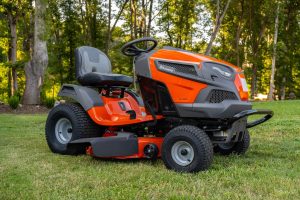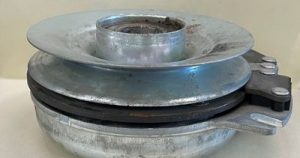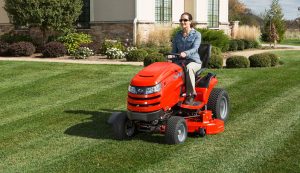When Does Michigan Grass Stop Growing?
Are you curious about The final mowing date for grass in Michigan? If you answered yes, then you should know that grass in Michigan stops growing when daytime temperatures drop below 50 degrees Fahrenheit.
Knowing when grass stops growing in Michigan has been essential for determining when to stop mowing. Depending on the season and the amount of leaves on your lawn, you may need to continue using your mower to mulch them until December. Mowing should continue as usual even if snow falls early and melts quickly.
If you’re interested in learning more about this subject, you should read the whole article. Grass growth in Michigan and other interesting facts will be discussed at length.
Table of Contents
What Time of Year Does Michigan Grass Stop Growing?
When grass in Michigan finally stops growing, it’s usually in late October or early November. In warmer parts of Michigan, however, that could be pushed back to the first of December.
The grass in Michigan stops growing in the fall when daytime temperatures average 5-10 degrees Celsius (40-50 degrees Fahrenheit), answering the question of when does grass stop growing. It can tolerate temperatures below this range, but its growth rate is too low to warrant frequent mowing.
However, if you’re curious about the exact month when grass in Michigan stops growing, you should know that, on average, this occurs in the months of October and November when the weather cools down significantly. This is also true for grasses in Canada and the northern United States.
When the temperature drops to about 5-10 degrees Celsius (40-50 degrees Fahrenheit), the grass on your lawn will stop growing for the season. Grass grows even in temperatures as low as 40 degrees Fahrenheit, but it does so at a much slower rate than it does when the air is above 50 degrees.
Keep in mind that it takes time for soil temperatures to equalize with those of the air. Dormancy is affected by soil temperature, which takes time to decrease.
Due to this and other complex factors affecting grass growth, it is unrealistic to assume that grass will suddenly stop growing when the forecast calls for air temperatures of 40 degrees Fahrenheit. Likewise, you should stop cutting your lawn when the grass stops growing, which can vary depending on the season and the weather.
Timeframes around late October to early December are typical. Regarding this topic, a lawn owner from Michigan posted on the Lawn Care Forum,
“When the grass stops growing, I stop cutting it. When Halloween rolls around, I stop cutting the grass every week. I either begin cleaning up around this time every year, or I go to an eow cut until spring.”
Our team has done extensive research, and the video below serves as an excellent resource for learning when grass typically stops growing:
When it’s not the right time of year, why do the grasses in your yard stop growing?
The grass in your lawn will stop growing for reasons other than weather if it isn’t getting enough of the nutrients it needs. Grass can’t grow without air, warmth, fertilizer, and water. It enters a state of dormancy if it is unable to obtain the resources it needs. In particular, dormancy protects grass from the damaging effects of extreme temperatures.
Extreme heat or cold can prevent grass from growing. If the grass on your lawn doesn’t get enough light—from either shade or the short winter days—it will stop growing. Air and water are both necessities for grass’s root system. That’s why a lack of water and oxygen will prevent grass from growing.
A lot of useful information can be gleaned from watching this video
Frequently Asked Questions (FAQs)
When is the best time to mow the grass in Michigan’s spring?
Wait until your lawn has fully greened up and grown before cutting it in the spring in Michigan. Additionally, you need to hold off until the temperature has been steadily above 40 degrees Fahrenheit for at least two hours. Rule of thumb: in the spring, when the grass in your lawn has grown to a height of about 3 to 4 inches, cut it. Cut it to a height of 2-2 12 inches, but no shorter than 2 inches.
When is the last day of the season in Michigan to cut the grass?
In Michigan, you know it’s time to stop cutting the grass when you have to use your deck to clear the frost off the grasses. In most cases, morning snowfall will cover the grass. The grasses will eventually stop growing after that. By and large, it occurs in the month of November. While most cool-season grasses have finished growing for the year, there are a few exceptions.
Summary
To sum up, we can say that the condition of your lawn is directly related to how well you take care of it. Not only are weeding and feeding essential components of routine maintenance, but so is timing. It is crucial to know the growth patterns of your lawn grasses if you want a healthy and beautiful lawn.
In case you’re wondering, “When does grass stop growing in Michigan?” the months of October and November are the correct answer. More information, including why your lawn grass dies in Michigan, has been covered in this article.
Hopefully, you now have a complete understanding of when you should stop cutting your grass in Michigan and when the grass will stop growing. However, if you still have questions, feel free to use the space provided below to do so.







